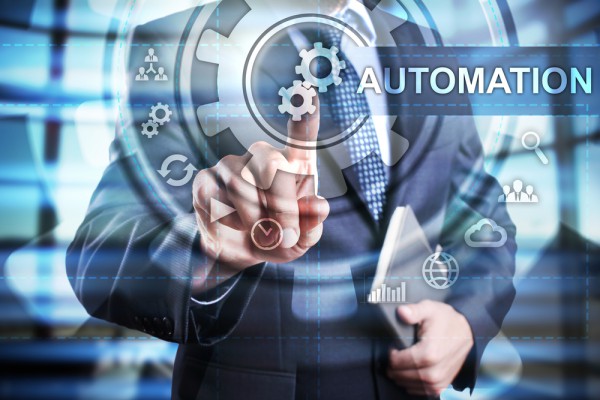How AI and automation have helped adapt to changed customer behavior [Q&A]

We're continuing to feel the effects of the COVID-19 pandemic in many areas, not least in the impact that it’s had on consumer behavior.
In order to cope with the shift in the way that people interact with businesses many have turned to increased automation and use of AI. We spoke to Sateesh Seetharamiah, CEO of enterprise automation specialist Edgeverve, to find out more about these changes and what they mean for the longer term.
BN: Why has the pandemic led so many businesses to turn to automated solutions?
SS: The COVID-19 pandemic has been a significant catalyst for change, accelerating the adoption of automated solutions across various sectors. Businesses worldwide have had to adapt to new ways of working, and automation has been instrumental in this transition. It has enabled businesses to maintain operational continuity, meet the increased demand for online services, and adapt to remote work setups.
This rapid digital transformation has reshaped business operations and significantly influenced customer behavior. Customers have become more accustomed to and comfortable with digital interactions. They have embraced the convenience, speed, and efficiency that automation brings to their business interactions. This shift in customer behavior has, in turn, encouraged more businesses to invest in automation, creating a positive feedback loop that further accelerates the adoption of automated solutions.
The pandemic has underscored the value of digital readiness and resilience. Automation has emerged as a key enabler of this resilience, allowing businesses to respond quickly and effectively to changing circumstances. In essence, the pandemic has served as a wake-up call for businesses, highlighting the importance of automation in today’s digital age.
BN: What are the key benefits automation can offer?
SS: Automation offers a multitude of benefits that extend far beyond efficiency gains. At its core, automation enhances efficiency by streamlining operations and reducing manual errors. This leads to significant cost savings and allows businesses to deliver their services more quickly and accurately.
Automation enables businesses to deliver superior customer experiences by enabling personalized, timely, and reliable services. This has a direct impact on customer behavior. Customers can enjoy faster and more accurate services, increasing customer satisfaction and loyalty. In today's competitive business environment, customer satisfaction is more important than ever, and automation provides businesses with a powerful tool to meet and exceed customer expectations.
Furthermore, by analyzing customer interactions and feedback, businesses can identify trends and patterns in customer behavior. This allows them to anticipate customer needs and preferences and deliver personalized services that resonate with their customers.
BN: The pandemic led to a rush for new solutions, are we now seeing a more mature approach develop?
SS: Indeed, the initial response to the pandemic was characterized by a sense of urgency as businesses scrambled to implement solutions that would enable them to navigate the immediate challenges. However, as we move forward, we're seeing businesses adopt a more strategic approach to digital transformation. Rather than viewing automation as a quick fix, businesses now recognize its potential as a strategic tool for long-term growth and competitiveness. This shift in perspective is indicative of a more mature and thoughtful approach to automation.
This shift is influencing customer behavior as well. Customers are becoming more discerning and demanding, expecting seamless and personalized experiences. Mature automation solutions can meet these expectations, further reinforcing the positive feedback loop between automation and customer behavior.
BN: Are customers open to these changes or do they even know that automation is involved in transactions?
SS: Today's customers are more digitally savvy than ever before, and they appreciate the benefits that automation brings. Whether it's faster service, improved accuracy, or personalized experiences, customers value the improvements that automation enables. However, the extent to which customers are aware of the role of automation in their interactions with businesses can vary. As businesses, our focus should be on delivering value to customers, whether that’s through automation or other means. The key is to ensure that any transition to more automated processes enhances the customer experience.
BN: Are AI and automation good for the workforce too?
SS: AI and automation are not about replacing humans but augmenting human capabilities. By taking over routine, mundane tasks, AI and automation free employees to focus on more complex, creative, and strategic tasks. This enhances job satisfaction and opens up opportunities for learning and growth.
Furthermore, AI and automation can provide valuable insights and decision-support tools, helping employees perform their roles more effectively. This, in turn, leads to better customer service and influences customer behavior by meeting their expectations for high-quality, personalized service.
As we continue to advance in our digital transformation journey, we remain committed to leveraging AI and automation to benefit our workforce, our customers, and the evolving dynamics of customer behavior. We believe that a happy and empowered workforce is key to delivering superior customer experiences, and AI and automation play a crucial role in achieving this.
Photo Credit: Wright Studio/Shutterstock
